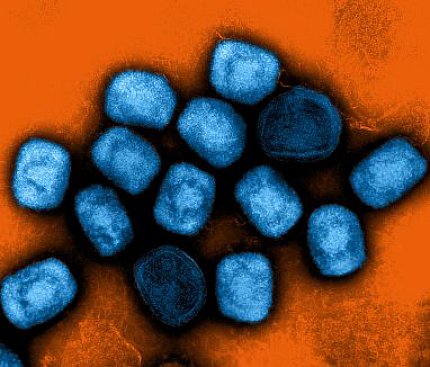NIH Releases Mpox Research Agenda

Colorized transmission electron micrograph of mpox virus particles (blue) cultivated and purified from cell culture.
Photo: NIAID
NIAID continues to collaborate closely with U.S. and international partners to reduce the impact of the current mpox outbreak and safeguard public health globally.
